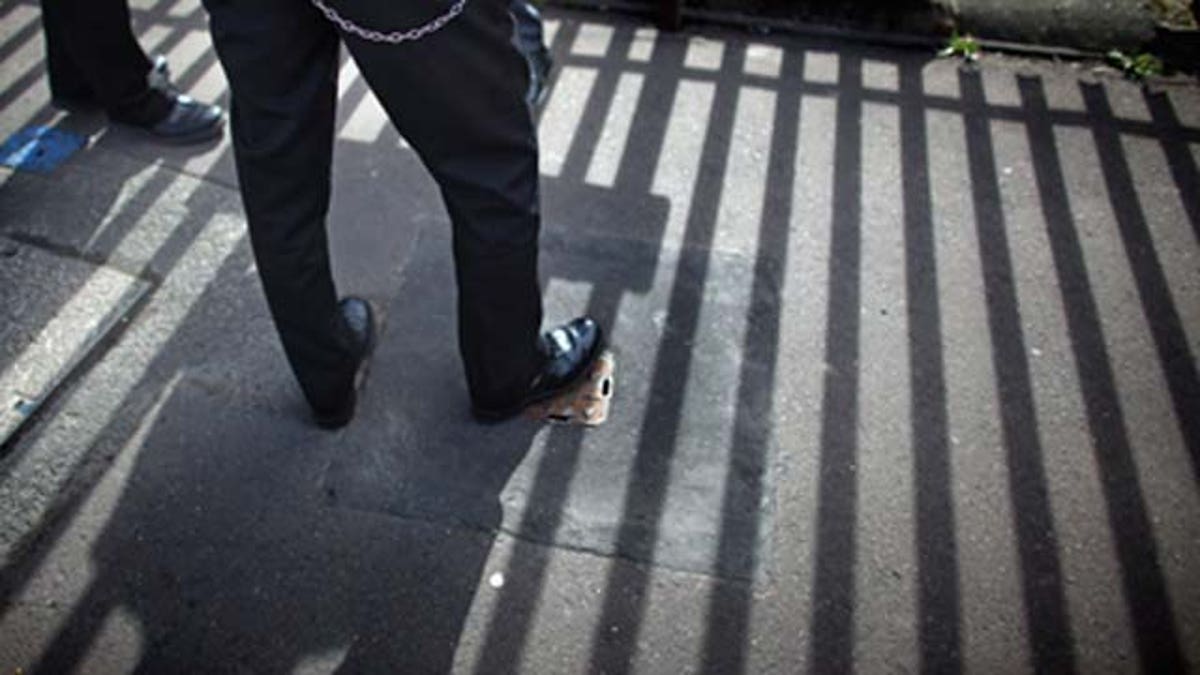
A general view of Winson Green Prison, Birmingham, which is one of three to be selected for privatisation on March 31, 2011 in Birmingham, England. Prison officers have threatened to strike over the plans to allow private security company G4 to run the prisons. (2011 Getty Images)
A holding order placed by the Venezuelan government to temporarily halt new admissions to the country's overcrowded and violent prisons, is causing police stations to rapidly fill up.
The order came last week from President Hugo Chávez's newly appointed prisons minister, Iris Varela.
Police Chief Manuel Furelos of Caracas' Sucre district said many local police forces are running out of room in their holding cells.
"All of the municipal and state ... police are having that problem," Furelos told The Associated Press in a telephone interview.
Opposition politicians were also highly critical of Varela's order. Carlos Ocariz, the opposition mayor of Sucre, said in a statement that the local police station is now about 80 percent full.
"With this measure, the human rights of detainees are being violated. Viable measures should be used to deal with the prison crisis," Ocariz said.
Attorney General Luisa Ortega Díaz defended Varela's decision, saying it aims to "humanize the penitentiary system." Speaking in an interview with the private television channel Venevisión,
Ortega denied authorities had cut down on arrests as a result of the order.
She also said authorities had decided to set up special "chambers" to reduce crowding in the prisons, though she didn't specify how they would work.
Furelos said he believes the government may be setting up temporary holding facilities "because they know the police stations are going to break down, and we're going to have serious problems."
Police Chief Pedro Granadillo in central Carabobo state expressed similar concerns, saying there are already about 40 detainees in police holding cells built for no more than 30. He said if there is no way to send inmates to prisons soon, the police station could be overwhelmed.
Venezuela's 34 prisons were built to hold about 12,000 inmates but now are filled with about 44,000 inmates.
Chávez has repeatedly promised to fix the prison system. He decided to create a new government ministry to oversee prison issues last month, shortly after inmates staged an armed, weeks long uprising that caused seven deaths at two adjacent prisons.
The uprising, which pitted rebellious prisoners against troops, ended after a 27-day standoff.
Chávez reiterated his commitment to overhauling the prison system before leaving for Cuba on Saturday to undergo his second round of cancer treatment. He told Varela that one of her main objectives should be dismantling "prison mafias."
The country's prisons have suffered repeated violent outbursts as rival gangs fight for control of cellblocks and sell weapons and drugs with the help of corrupt prison guards.
Last year, 476 people died and 967 were injured in prison violence, according to figures compiled by the Inter-American Commission on Human Rights.
Based on reporting by the Associated Press.
Follow us on twitter.com/foxnewslatino
Like us at facebook.com/foxnewslatino
